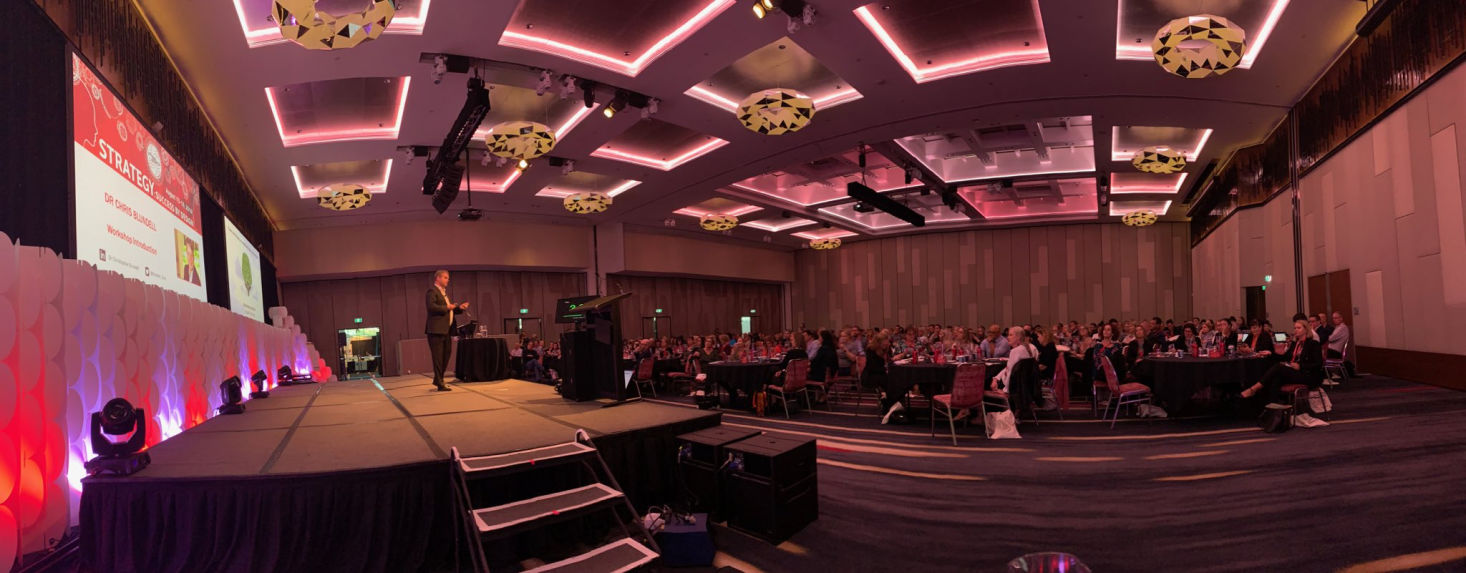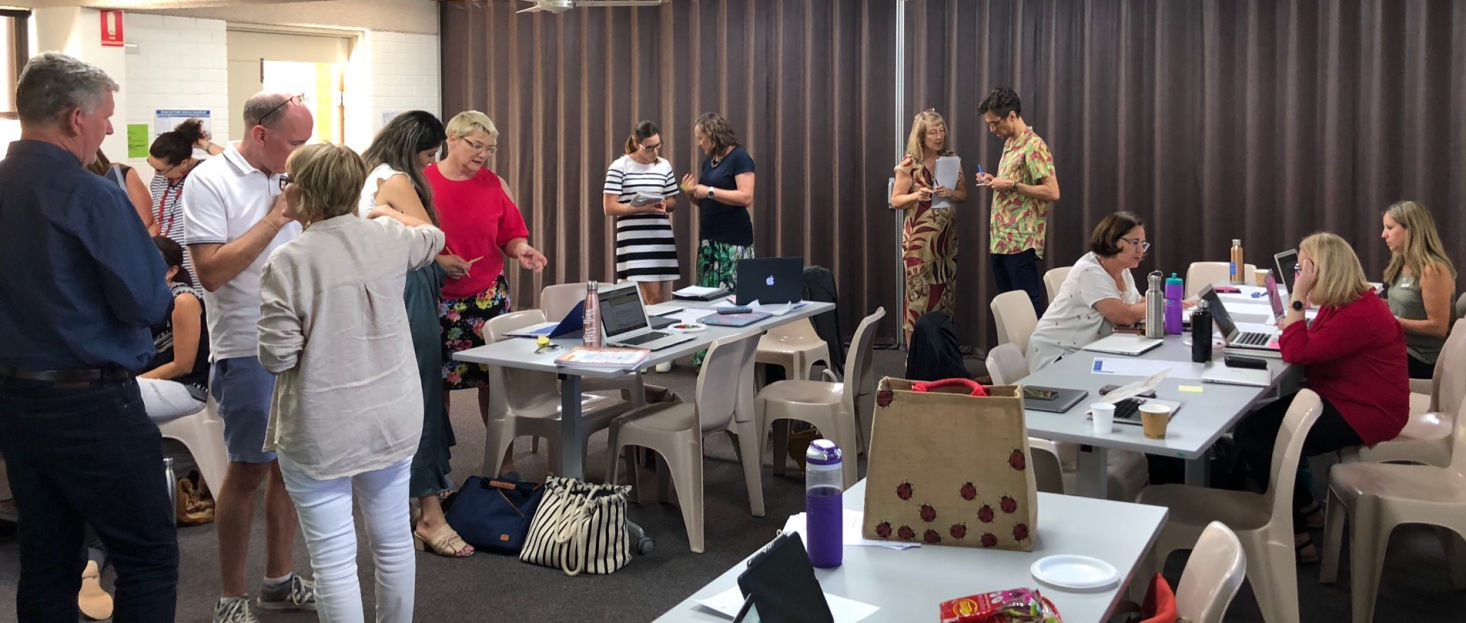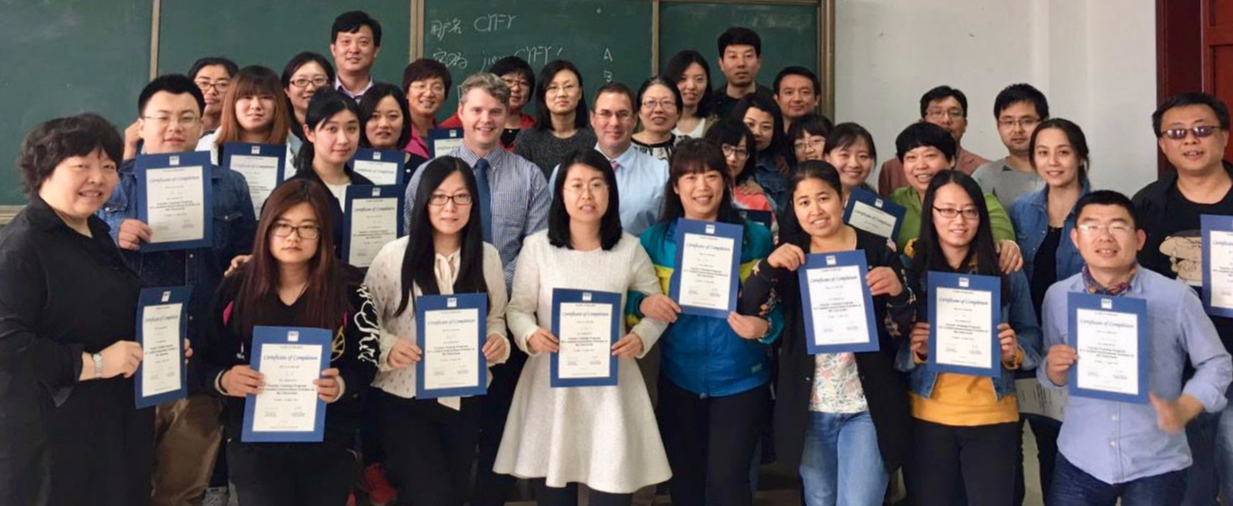
Teaching - Curriculum - Assessment
Chris brings a wealth of experience from his time as a secondary teacher and deputy principal of a large P-12 independent school to his role as a Senior Lecturer in the Faculty of Education at QUT. He teaches assessment, digital pedagogies and leadership units to undergraduate and postgraduate students. He also supervises higher degree research students.
All learning must be purposeful and developed within an authentic context. Each of the units I coordinate starts with the following undertaking to students: all learning will be real world, pragmatic and student-focussed. Each learning activity is rationalised and connected to the professional practice and responsibilities of teachers.
Learning is typically sequenced into acquire (essential content), meaning-making (engagement with and use of content) and transfer (creative application in new context) phases. Strategies like problem- and challenge-based learning are used to activate and develop the skills needed for collaboration and inquiry. Chris' goal is to enable agile students who are prepared for life, work and professional learning in dynamic environments, including the ever changing influence of digital technologies on schooling. This approach is designed to activate learning that incorporates the full range of cognitive engagement on Bloom’s revised taxonomy.
Because Chris is preparing students for careers as teachers or developing the established practices of experienced teachers, Chris models good pedagogy. In acknowledgment of their status as adult learners, Chris encourages his students to analyse and reflect on the pedagogies that he model. He uses his extensive experience as a teacher, school leader and curriculum developer to ensure the authenticity of the content and learning by contextualising it with real world examples.
When designing for learning, Chris simultaneously develop the curriculum, core learning experiences and assessment because these elements should be inexorably interconnected in teacher practice.
"Chris came to Redlands College in 1992 as a first-year teacher. He immediately impressed with the quality of his teaching in areas as diverse as Earth Science and Art. His ability to engender interest and engage students saw Earth Science established as a popular option with students. A distinctive feature of his teaching has always been, and still is, his willingness to try new methods to develop deep and meaningful learning, and to push the envelope in assessment to the benefit of all students.
Chris is extremely technology literature and has worked with the IT team to lead the implementation of technology in the classroom, culminating in the 1:1 iPad Programme. Chris models and tries new methods supported by the technology in his own classroom."
"Chris’ relationships with students and his ability to connect with them has been an important part of the College’s success. I know many of us regularly hear from students about the influence he has been to many."
Chris values the privilege and responsibility of being a teacher. As a result, he actively worked to identify better opportunties to support student learning, then design, implement and evaluate new pedagogies and experiences
Since 1997, Chris has actively explored how digital technologies can be used to support teaching and learning. He prioneered use of computers and the internet outside laboraties.
More recently, Chris modelled how to use ubiquitious iPads to realise new, more engaging and meaningful student-centric pedagogies.
Using his considerable knowledge of assessment processes, Chris has employed digital technologies to help students collect and publish better evidence of their learning. This included using iPads to record video logs of learning and the creation of multimodal presentations to more fully explore the conceptual relationships between key learnings.
Chris has been actively involved in the development of all Queensland Earth Science syllabus documents since 1995. Working with the Queensland Curriculum and Assessment Authority (QCAA), he co-wrote the current Earth Science syllabus and was a member of the Expert Writing Team for the new Earth and Environmental Science syllabus (to be used from 2019).
As a representative of Independent Schools Queensland and the QCAA, Chris consulted on the development of the science subjects for the Australian Curriculum, particularly the draft Earth and Environmental Science curriculum.
As part of his role as State Review Panel Chair, Chris supported state-wide development, implementation and review of assessment in Earth Science. He developed exemplar assessment tasks and provided examples of standards. All current examples on the QCAA website are based on tasks developed by Chris and used by Redlands College students.
For 13 years, Chris acted in the role of State Review Panel Chair for Earth Science. He was responsible for leading work program and assessment quality assurance processes, including state-wide moderation of standards. This included supporting and providing advice to schools.
Chris also supports the integration of digital technology in pedagogy and schooling as part of professional learning programs. This includes working with Australian colleagues in schools and via a wide range of professional association events.


